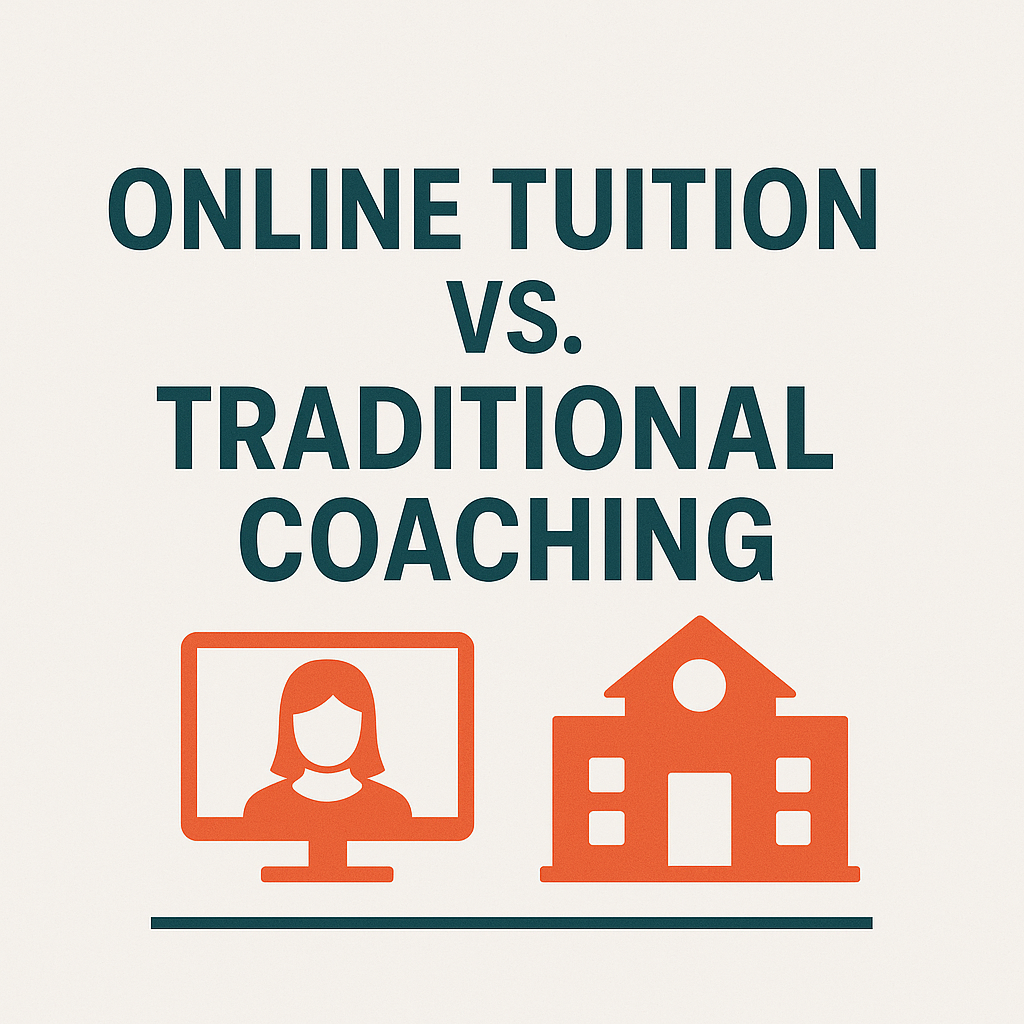Online Tuition vs. Traditional Coaching: What’s Better?
Compare online tuition and traditional coaching. Discover which learning method is more effective for students in terms of flexibility, performance, and results.

Online Tuition vs. Traditional Coaching: What’s Better?
Introduction
For decades, traditional coaching centers were the primary choice for students seeking extra academic help. However, the rise of online tuition has changed the education landscape forever.
Today’s learners have access to a world of digital classrooms, expert tutors, and interactive study tools — all from the comfort of home. But is online tuition truly better than traditional coaching? Let’s explore both to find out.
1. Flexibility and Convenience
Online Tuition: Offers complete flexibility. Students can attend classes anytime, anywhere — no commuting, no fixed schedules.
Traditional Coaching: Fixed class timings and travel make it less flexible, especially for students with busy routines.
✅ Winner: Online tuition — ideal for students who value convenience and time management.
2. Accessibility to Expert Tutors
Online Tuition: Removes location barriers. A student in India can learn from a math tutor in the UK or a science teacher in Canada.
Traditional Coaching: Limited to local tutors and available subjects.
✅ Winner: Online tuition — provides global access to top-quality educators.
3. Learning Experience and Interaction
Online Tuition: Interactive tools like whiteboards, quizzes, and screen sharing make sessions engaging. One-on-one teaching ensures personal attention.
Traditional Coaching: Group settings may limit interaction, especially for shy students who hesitate to ask questions.
✅ Winner: Online tuition — offers more personalized and engaging sessions.
4. Cost and Time Efficiency
Online Tuition: Saves travel time and reduces costs for transport, materials, and infrastructure. Many platforms offer flexible payment plans.
Traditional Coaching: Involves extra expenses and time spent traveling to physical centers.
✅ Winner: Online tuition — more affordable and time-efficient.
5. Social Interaction and Discipline
Online Tuition: Lacks the face-to-face social environment of physical classrooms, which can impact group learning and peer motivation.
Traditional Coaching: Encourages teamwork, group discussions, and healthy competition.
✅ Winner: Traditional coaching — better for students who thrive on in-person social engagement.
6. Performance and Outcomes
The effectiveness of both methods depends on the student’s commitment and the tutor’s skill.
Online tuition excels in flexibility and technology, while traditional coaching offers structure and social learning. The best approach may combine both — using online tuition for regular guidance and offline sessions for practice or labs.
Conclusion
In the modern era, online tuition stands out as the smarter, more efficient learning option. It offers accessibility, personalized teaching, and flexibility unmatched by traditional coaching.
However, students who enjoy physical interaction can benefit from a hybrid model — blending the best of both worlds for optimal results.
>>>===
The world of higher education offers a wealth of opportunities, from expert professors guiding students in fields like genetics and anatomy and physiology, to diverse academic paths at elite institutions.